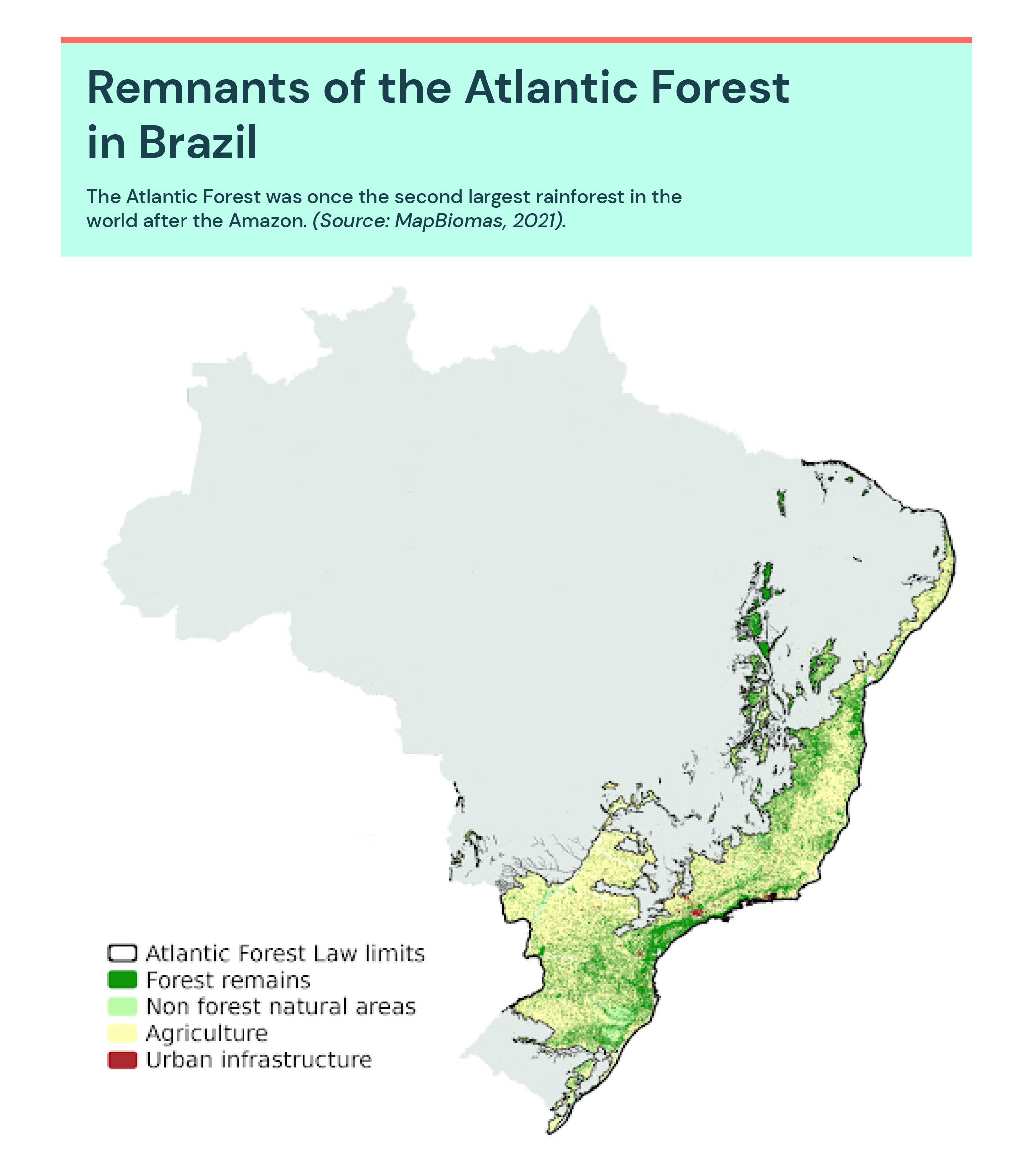
China and EU risk importing illegal soy from Brazil’s Atlantic Forest
China, the Netherlands and France are importing soy at risk of being grown on illegally deforested land in the Atlantic Forest in Brazil, according to analysis by Trase and SOS Mata Atlântica.
Deforestation to clear land for soy plantations is increasing in Brazil’s Atlantic Forest despite legal protection. In the last five years more than 30,000 hectares (ha) of native forest and 50,000 ha of natural grasslands were converted into soy plantations, according to analysis by Trase and conservation group SOS Mata Atlântica.
The Atlantic Forest runs north to south along the eastern regions of Brazil, Argentina and Paraguay. It was originally the second largest rainforest in the world after the Amazon, but only around a quarter of it remains as a result of centuries of logging, urbanization and agricultural expansion (see map).

Under Brazil’s Atlantic Forest Law enacted in 2006, any deforestation in the biome is forbidden with few exceptions. Despite this, deforestation continues due to strong global demand for agricultural commodities and the government’s weak monitoring and law enforcement.
Trase analysis of data from MapBiomas shows that around 3.2 million ha of native vegetation in the Atlantic Forest was cleared for new agricultural land or pasture between 2008 and 2021 – 14% to grow soy (448,000 ha). These figures are likely to be an underestimate because they are based on the official boundaries of the Atlantic Forest biome, which are smaller than the boundaries in the Atlantic Forest Law. Additional areas covered by the law that are not included in the official biome include soy deforestation frontiers in the states of Bahia, Piaui and Mato Grosso do Sul.
China and EU are key export markets for Atlantic Forest soy
Data from Trase Supply Chains shows that the Atlantic Forest produced almost 35 million tonnes of soy in 2020 – 29% of Brazil’s annual soy production. China imported 55% of Atlantic Forest soy while 25% went to Brazil’s domestic market. The remaining 20% was exported to countries including the Netherlands, France and South Korea. Soy imported by the Netherlands is likely to be re-exported to other EU countries. Trase data shows that 11% of Atlantic Forest soy was traded by Cargill, 10.6% by Bunge and almost 5% by COFCO.
Soy production occupied about 10.7 million hectares of land in the Atlantic Forest. Trase calculates that more than 22,000 ha of soy harvested in 2020 was planted on land in the Atlantic Forest that was deforested in the previous five years – an increase from 15,000 ha in 2013. Much of this land was directly converted to soy plantations, likely contravening the Atlantic Forest Law (see figure).
About 46% of soy with deforestation exposure from the Atlantic Forest was exported to China in 2020 while 44% was consumed within Brazil. China’s state-owned agribusiness COFCO accounted for 14% of the deforestation exposure while US traders Bunge accounted for 7% and Cargill around 5%.
Although the EU’s deforestation exposure from Atlantic Forest soy is much less at about 3%, the bloc recently agreed legislation prohibiting imports of soy and other agricultural commodities grown on deforested land. Traders in consumer countries will be required to conduct due diligence on their supply chains to demonstrate that they are free of deforestation.
Continuing deforestation risks undermining conservation efforts. In 2022, the UN declared the Atlantic Forest as one of ten ‘World Restoration Flagships’ under the banner of its Decade on Ecosystem Restoration. Some 700,000 ha have already been restored with the target of achieving 1 million hectares by 2030 and 15 million by 2050.
See article Soja também desmata Mata Atlântica by Luís Fernando Guedes Pinto and Vivian Ribeiro in Valor Econômico.









